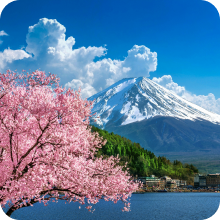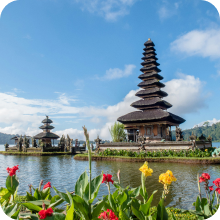Bali’s Rice Terraces: Discover Tegalalang and Jatiluwih
Bali is known for many things: its beautiful beaches, vibrant culture, and, of course, its stunning rice terraces. For seasoned travelers like myself, who’ve spent over a decade exploring Bali’s natural beauty, few sights compare to the serenity of these lush, green fields cascading down hillsides. The island’s two most famous rice terraces—Tegalalang and Jatiluwih—offer visitors a chance to witness not only breathtaking views but also a glimpse into the traditional farming methods that have shaped Bali’s landscape for centuries. This guide will help you navigate both Tegalalang and Jatiluwih, so you can enjoy these iconic landmarks to the fullest.
Table of Contents
- Tegalalang Rice Terraces
- Jatiluwih Rice Terraces
- Differences Between Tegalalang and Jatiluwih
- Best Time to Visit Bali’s Rice Terraces
- Tips for Visiting Bali’s Rice Terraces
- FAQs
Tegalalang Rice Terraces
Located just north of Ubud, Tegalalang Rice Terraces are perhaps the most well-known rice paddies in Bali. While the area has become quite popular with tourists, it still offers a glimpse into the island’s agrarian past. The terraces are arranged in an intricate series of steps that spill down the hillside, with coconut trees towering above. The landscape here is so picture-perfect that it’s become one of Bali’s most Instagram-worthy spots.
How to Get There
Tegalalang is just a 20-minute drive from Ubud, making it a convenient day trip for anyone staying in the area. You can rent a scooter or hire a driver to take you there. Parking is usually available near the main entrance, although it can get crowded during peak hours.
What to Do
Aside from admiring the view, you can actually walk along the terraces and even chat with local farmers who still use traditional irrigation techniques. If you’re up for a little adventure, there are numerous swings and ziplines offering a unique perspective of the rice fields. Many of the shops and cafés near the entrance also sell handmade crafts, perfect for picking up a few souvenirs.
Pro Tip
Go early in the morning to avoid the crowds and enjoy the terraces in peace. The light is also softer, making it ideal for photography.
Jatiluwih Rice Terraces
For those seeking a more tranquil and authentic experience, the Jatiluwih Rice Terraces are the perfect choice. Located in the Tabanan Regency, this UNESCO World Heritage site is home to some of the most expansive rice terraces in Bali. Jatiluwih stretches over 600 hectares and showcases Bali’s traditional Subak irrigation system, a cooperative method of water management dating back centuries.
How to Get There
Jatiluwih is about an hour and a half drive from Ubud, and slightly longer from the tourist hubs of Kuta or Seminyak. The journey takes you through some of Bali’s most scenic countryside, with picturesque villages and rolling hills along the way.
What to Do
Jatiluwih is ideal for those who want to immerse themselves in Bali’s natural beauty without the commercial feel of other tourist spots. You can take a leisurely hike through the terraces on one of several well-marked trails. These walks range from short, 30-minute strolls to more extended routes lasting a couple of hours. Along the way, you’ll pass by farmers tending their fields, offering a glimpse into Bali’s agricultural heritage.
Pro Tip
If you’re visiting Jatiluwih, bring a picnic. There are plenty of quiet spots where you can relax and enjoy the stunning views in complete serenity.
Differences Between Tegalalang and Jatiluwih
While both Tegalalang and Jatiluwih are spectacular in their own right, they offer quite different experiences. Tegalalang is closer to Ubud and more accessible, making it a popular stop for many tourists. As a result, it can feel a bit crowded, especially during peak season. However, its proximity to Ubud makes it easy to visit for a quick morning or afternoon trip.
On the other hand, Jatiluwih offers a much quieter, more authentic experience. The terraces here are more extensive, and the surrounding area is less developed, allowing visitors to fully immerse themselves in the natural landscape. It’s the perfect choice for those looking to escape the crowds and explore Bali’s countryside at a slower pace.
Thanks for visiting our blog, are you planing to travel to Bali? Check out our eSIM Bali.

Best Time to Visit Bali’s Rice Terraces
Timing is everything when it comes to visiting Bali’s rice terraces. The best time to visit is during the rice growing season, which typically occurs between April and October. During this time, the terraces are lush and green, creating the picture-perfect scenery that Bali is famous for. If you visit after the rice has been harvested, usually between November and March, the fields may look a little barren, but the landscape is still beautiful in its own right.
As for the time of day, early morning is ideal for avoiding the crowds and experiencing the terraces in their most peaceful state. The soft morning light also makes for great photos. Late afternoon is another good option if you want to catch the golden hour as the sun sets over the terraces.
Tips for Visiting Bali’s Rice Terraces
Wear Comfortable Shoes
Whether you're exploring the steep steps of Tegalalang or hiking the longer trails at Jatiluwih, comfortable shoes are a must. The paths can be uneven and slippery, especially after rain, so sturdy footwear will make your visit much more enjoyable.
Bring Water and Snacks
While there are cafés near the entrance of both terraces, it’s a good idea to bring water and snacks, especially if you plan to hike or spend an extended time exploring. The tropical heat can be intense, so staying hydrated is key.
Respect the Local Farmers
Remember that the rice terraces are working farms, and many of the locals are simply going about their daily routines. Be mindful of where you walk and avoid trampling the rice plants. If you see farmers at work, feel free to say hello and ask questions—they're often happy to share insights about their farming practices.
Don’t Forget Your Camera
Bali’s rice terraces are some of the most photogenic landscapes on the island. Whether you're a seasoned photographer or just snapping pictures with your smartphone, you’ll want to capture the beauty of the cascading green fields. A wide-angle lens can be particularly useful for capturing the vast expanse of the terraces at Jatiluwih.
Check out local government updates before you go!
FAQs
Which is better, Tegalalang or Jatiluwih?
Tegalalang is more accessible and popular, while Jatiluwih offers a quieter, more authentic experience with expansive terraces. Both are worth visiting, depending on your preferences.
Do I need a guide to explore Bali’s rice terraces?
No, you don’t need a guide to explore either Tegalalang or Jatiluwih. However, local guides are available if you prefer to learn more about the history and significance of the terraces.
What is the best time to visit Bali's rice terraces?
The best time to visit Bali’s rice terraces is during the growing season from April to October when the fields are lush and green. Early morning is the best time of day to avoid crowds.















